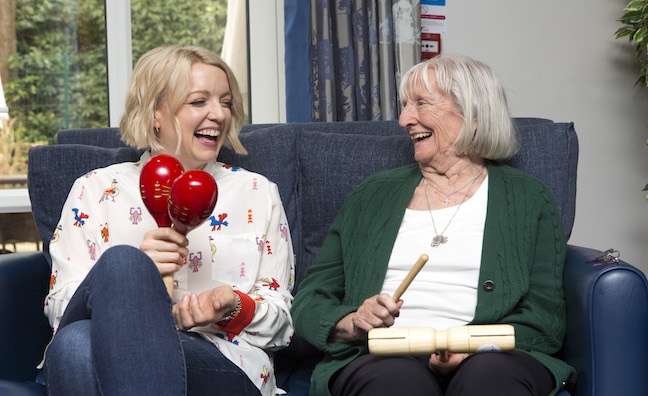BBC TV and radio presenter Lauren Laverne is today (December 5) launching a new initiative to highlight the positive impact music can have for people living with dementia with a series of guides on how to create the perfect personalised playlist.
The campaign has been designed to help raise awareness of the growing evidence that listening to music with a personal connection has huge benefits for people living with dementia.
Last year, Lauren Laverne was appointed as the ambassador for Music For Dementia 2020. Laverne made a nine-hour playlist with her father, Dr Leslie Grofton, before he died last November, and has spoken out today about the comfort she took from creating a playlist with her dad.
Laverne said: “I have seen first-hand the deep conversations, comfort and ongoing legacy that can grow out of creating a playlist with a loved one. It was something I did with my dad before he died of kidney disease last year. Music was a huge part of his life but by then he was too poorly to access his own collection. It took a whole day and when we were done, we were left with nine hours’ worth of music. I’m still adding to it as well as listening to it and it is enormously comforting. It helps me feel closer to him. I’m so glad I did this when he was still around, it not only provided a deeper connection when we were together, but his favourite music can still reach me and speak to me now. I want this to be available to everyone who has a loved one living with dementia.”
Music For Dementia 2020 has published guides to help create playlists on Amazon, Apple, Spotify, Google and YouTube, which include practical advice for those with dementia and their carers on how to build a playlist on a variety of platforms. You can read more here.
Neil Utley, founder and trustee of The Utley Foundation, said: “As someone who is involved in the music industry and just loves music, I am delighted that the Music for Dementia 2020 Campaign and Playlist for Life have come together to promote these guides.”
He added: “We know the devastating impact dementia can have, not just on the individual but their families and carers too. Everyone living with dementia should be offered music as part of their care. We are calling on the music industry, health and social care sectors, and the general public to work with us to make it free and easy for people with dementia to access music.”
Grace Meadows, programme director at Music For Dementia 2020, said: “Having access to personalised music, in the right way and at the right time, has been shown to be much more effective than just putting the radio on or listening indiscriminately to music. The act of creating a personalised playlist, whether that’s done online, writing it down or a piece of paper on by going through your music collection with someone, makes up the soundtrack of your life. Often people living with dementia, their friends and carers don’t know how to get on to the right platform to stream a playlist, nor do they know how to have a conversation with their loved one about what music they would like on it. By launching new step-by-step visual guides, which can be found on www.musicfordementia2020.com we are encouraging people to create a playlist this Christmas which can reduce some of the symptoms of dementia such as agitation, as well as bringing people together to build an emotional connection, facilitate conversations and create memories.”







